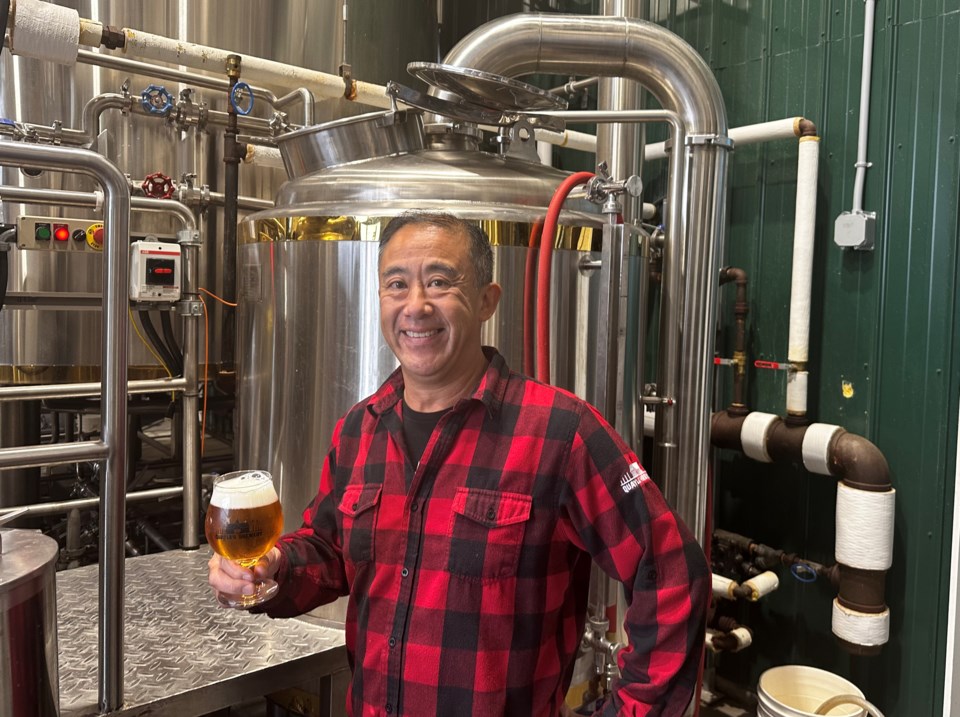An Ontario craft brewer is praising a provincial government plan to expand the sale of beer, wine, and other low-alcohol beverages to more grocery and convenience stores in Ontario.
Beginning Jan. 1, 2026, participating convenience, grocery, or big-box stores will be able to sell beer, wine, cider, seltzers, coolers, and ready-to-drink cocktails. Ontario would become the second jurisdiction in Canada to do so, after Quebec, the government said in a news release earlier this month.
See: Alcoholic drinks coming to a convenience store near you
The province says the move will open up sales to an estimated 8,500 stores.
“Not just for us, but any craft brewer, it means an extra 8,000-plus points of distribution,” said Graydon Lau, owner of Quayle’s Brewery in Oro-Medonte. “That’s an awesome opportunity. Who wouldn’t want that to happen?”
He said part of the brewery’s work over the next two years will include making sure it can successfully tap into the expanded market.
“It’s great to have the opportunity to sell our beer in places east, west, north and south, but how do we get our beer there and, more importantly, how do we get our beer there profitably?” Lau asked.
Under the expansion, there will be no restrictions on the size of cases. Any retailer will be able to sell 24- or even 30-packs of beer, but the LCBO will remain the only distributor of spirits and continue to sell lower-ABV (alcohol by volume) drinks as well.
New retailers will be able to sell alcohol between 7 a.m. and 11 p.m., seven days a week, Ministry of Finance staff said in a technical briefing for media before Premier Doug Ford’s announcement earlier this month.
As it stands, Lau said, getting his product into The Beer Store or the LCBO involves an application process with the LCBO, where new and existing breweries can apply to have their products listed in stores for first-time, seasonal or new products.
Getting products to market, under the status quo, is a process Lau said requires a team to carry out successfully.
“You need a team, you need people, you need resources, and all those things cost money,” he said. “In this day and age, where resources are limited, it’s hard to be able to get that reach without having the bodies and the resources behind it.”
While it’s too early to tell, Lau hopes getting beer to market will be an easier process following the expansion.
“LCBO is the gatekeeper of all listings for any distribution channel right now, so it has to go through them,” he said. “We’re hoping, through the Ontario Craft Brewers council, that they will be making the process a little bit more streamlined, a little bit more easy.”
He said he understands the need for regulations and testing regarding a brewery’s products, but he hopes the expansion will bring an opportunity to stock local businesses with products more easily.
“For instance, if we want to have one of our products listed locally, you don’t have to go through the whole process of going to the LCBO, doing the whole application process, just to have a local area distribution,” he said.
While those details are yet to be settled, he views the expansion as a positive for new and established breweries alike.
“It’s going to be easier for everybody,” he said. “If you’re a new brewery coming in and you can sell your beer to the Circle K on Coldwater Road, that’s great, whereas (we) don’t have that opportunity right now.”
The two-year wait on the expansion is due to the province’s master framework agreement with The Beer Store, which limits where beer can be sold in Ontario, expiring Dec. 31, 2025.
Following the expansion, The Beer Store will still exist and will still sell beer. It will also continue to run the province’s alcohol container recycling system until 2031.
The five-year term was decided on to give The Beer Store some breathing room so it could keep distributing beer and operating the recycling program, ministry staff said.
— With files from Nikki Cole



